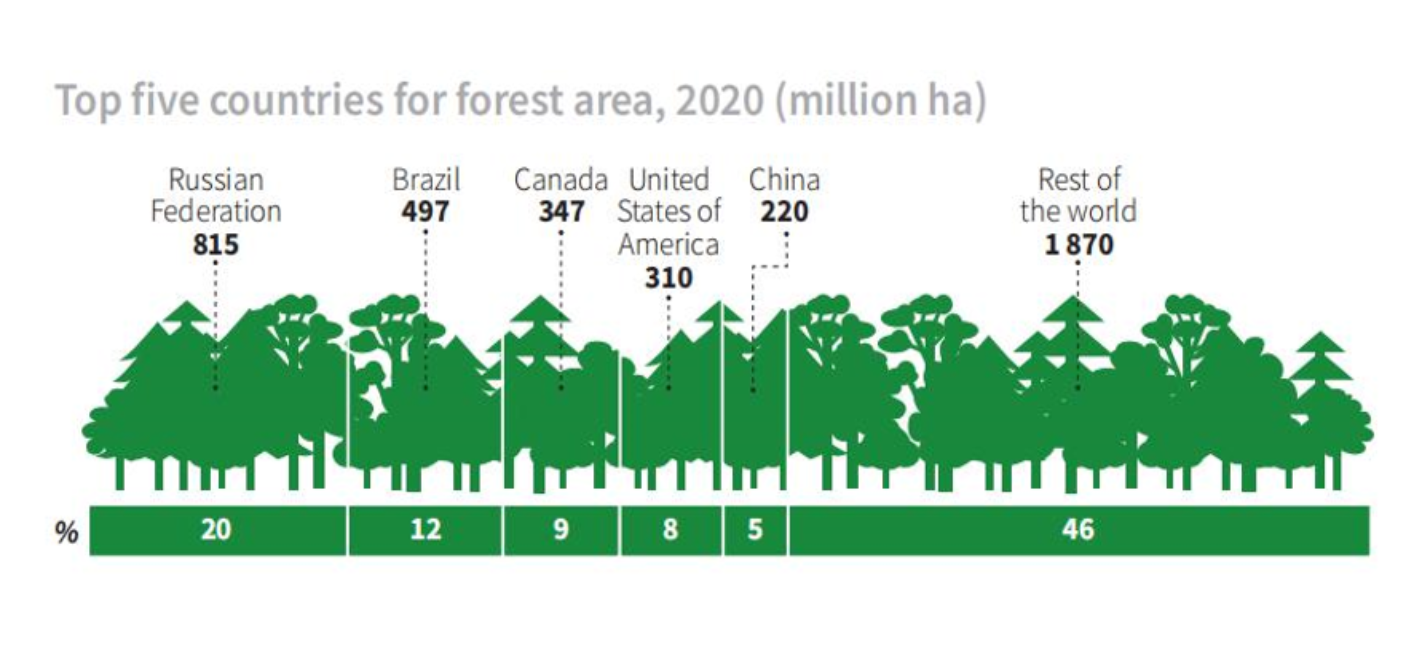Forum
Lecture——Outlook of Global Forests
Author: Chinazam Okorie|SRS 2021
Edited: Aneka Rebecca Rajbhandari|SRS 2021
On December 28, the Silk Road School organized its 7th seminar related to the Belt and Road Initiative (BRI), focusing on BRI policies, international cooperation, public exchanges and their influences around the world. The seminar was delivered by Prof. Liu Jinlong, director of the Centre of Forestry, Environmental and Resources Policy Study at Renmin Univeristy.The two part lecture on global forest outlooks focused on understanding the Chinese forest governance, policies and transformation in the last 70years and lessons that can be learnt from it. One of the objectives of this seminar was also to enjoin interested students to participate in the analysis of forestry and biodiversity issueswhich have become hot topics internationally and particularly in BRI member countries.
In the first part of the lecture, Prof Liu provided a detailed background and data on the world’s forest area; and why it is increasingly relevant globally. According to the presentation some interesting facts include that the world has a total forest area of about 4.06 billion hectares (ha), which is about 31% of total land territory area. This area is equivalent to 0.52ha per person (global average), which means everybody has a little more than half a hectare in world forest.

The presented statistics generated very interesting discussions as students from most of the aforementioned countries and regions were represented in the very diverse class and had differing opinions on some of the facts. For instance Clayton Boylan, a masters in Contemporary China Studies first year student from the United States, introduced Ethiopia’s big afforestation initiative to make up for many years of deforestation that ravaged almost 90% of its natural forest. Richard Mwinga, also a masters student from the same batch from Zambia also shared some experience from his country ; he mentioned that illegal logging has been a challenge in his country for a long time due to weak government policies and corruption however the landscape is changing more positively in recent years.
One of the re-current questions in the course of the lecture was on the issue of ‘traceability of logs/wood’ in order to prosecute offenders. Ana Palazzo, another masters student from the same batch, from Brazil noted that though her country is able to trace logs because they possess the mechanism to map their territory using geographical coordinates, it does not completely eliminate the challenges of illegal logging. The point made by Ana led the Prof Liu to highlight some of the challenges of global forests as follows:
Expressing concern about continued deforestation and forest degradation, as well as the slow rate of afforestation and forest recovery and reforestation, and the resulting adverse impact on economies, the environment, including biological diversity, and the livelihoods of at least a billion people and their cultural heritage, and emphasizing the need for more effective implementation of sustainable forest management at all levels to address these critical challenges
Recognizing the impact of climate change on forests and sustainable forest management, as well as the contribution of forests to addressing climate change
Reaffirming the special needs and requirements of countries with fragile forest ecosystems, including those of low forest cover countries
Emphasizing that effective implementation of sustainable forest management is critically dependent upon adequate resources, including financing, capacity development and the transfer of environmentally sound technologies, and recognizing in particular the need to mobilize increased financial resources, including from innovative sources, for developing countries, including least developed countries, landlocked developing countries and small island developing States, as well as countries with economies in transition,
Stressing the need to strengthen political commitment and collective efforts at all levels, to include forests in national and international development agendas, to enhance national policy coordination and international cooperation and to promote intersectoral coordination at all levels for the effective implementation of sustainable management of all types of forests
Also emphasizing that implementation of sustainable forest management is also critically dependent upon good governance at all levels
The lecture created an atmosphere for deep reflection on how human activities, population growth and economic development adverse effects of climate change, biodiversity and the world’s forests generally. It also provided some lessons from China’sexperience in 70year transformation in forest governance and ecosystem services including planting trees at the same rate they are cut down to maintain a balanced eco-system; improving the efficiency of forest management governmental institutions; providing incentives for increased private sector forest management; and adherence to global best practices to conserve the ecosystem by actively participating in international bodies such as the Intergovernmental platform for Biodiversity and Ecosystem Services.
Ana Palazzo from Brazil also shares: Brazilalone represents 22% of the world’s agricultural land and more than 20% of global biodiversity.The country protects 66% of its territory with native forests and still remains top 3 global producers and exporter of major agricultural products, such as grains and animal protein.Moreover, almost 1/3 of the protected forests in Brazil are located inside rural private proprieties. This means that Brazilian farmers not only work for producing high quality food to feed almost 200 different countries, alongside its domestic market, but, also, plays a crucial role, in terms of protection of the environment. In this sense, the structuring of a global market related to carbon emissions compensations and payment for environmental services is crucial,primarily for promoting the safe landscape that the world needs for guaranteeing the resources for future generations.

